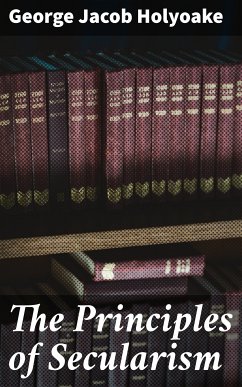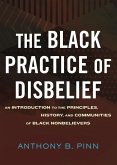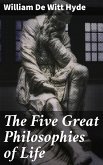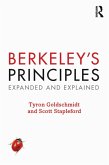In "The Principles of Secularism," George Jacob Holyoake meticulously articulates the foundations and ramifications of secular thought in the context of a rapidly modernizing society. The book is a cornerstone of secular philosophy, characterized by its analytical prose, fortified by Holyoake'Äôs deft use of historical examples and contemporary social critiques. He engages with religious beliefs critically, advocating for a moral framework independent of religious dogma, while exploring the implications of this stance on individual liberty and societal governance during the 19th century'Äîa period marked by profound social upheaval and the decline of theistic authority. George Jacob Holyoake, a prominent Victorian social reformer, was a pivotal figure in the secular movement and a staunch advocate for socialism and cooperative societies. His experiences, including his early exposure to the limitations imposed by religious orthodoxy and his engagement in political activism, profoundly shaped his vision of a world where reason and humanism preside over superstition and dogma. These experiences inform his writing, making "The Principles of Secularism" not only a philosophical treatise but also a call to action against the constraints of religious institutions. This book is essential reading for anyone interested in the interplay between religion and modernity. Holyoake'Äôs persuasive arguments and analytical rigor provide an invaluable foundation for understanding secularism'Äôs role in contemporary discussions about ethics, governance, and human rights. Readers will find themselves challenged to reconsider traditional beliefs and inspired to embrace a more reasoned and equitable worldview.
Dieser Download kann aus rechtlichen Gründen nur mit Rechnungsadresse in A, B, BG, CY, CZ, D, DK, EW, E, FIN, F, GR, H, IRL, I, LT, L, LR, M, NL, PL, P, R, S, SLO, SK ausgeliefert werden.









